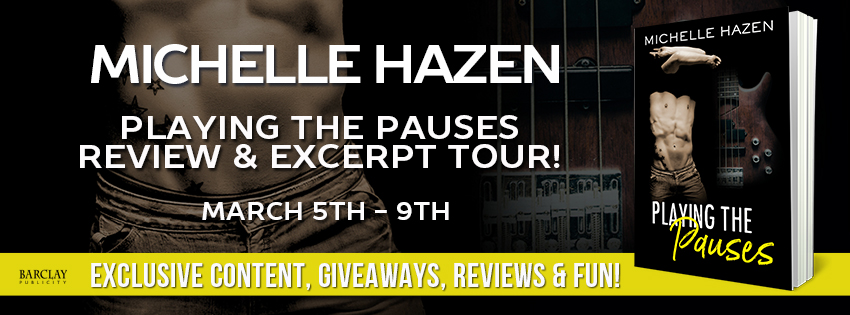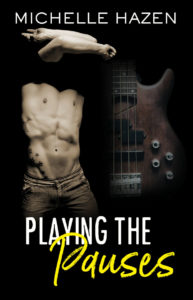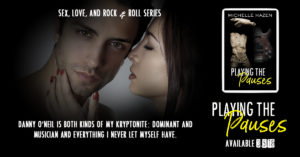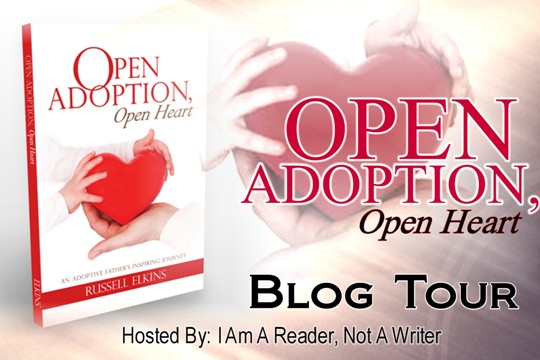
We are excited to celebrate the release of PLAYING THE PAUSES by Michelle Hazen. This is the second installment in her Sex, Love, and Rock & Roll series. Follow the tour for reviews, excerpts, guest posts, plus enter to win a $50 Amazon gift card!
“Hazen’s use of the frantic energy of a rock band’s tour contrasts perfectly with the slow and seductive dance this couple engages in. Readers are sure to enjoy following The Red Letters on their drama-fueled climb to fame. “ —RT Book Reviews
“To call Playing the Pauses an erotic novel alone would be to belie its equally strong explorations of the boundaries between personal, career, and sexual growth.” —Midwest Book Review
When an ultra-independent tour manager meets the one musician she can’t resist, their kinks fit together perfectly, but their lives don’t. Michelle Hazen is back with PLAYING THE PAUSES, the second, stand-alone installment in her Sex, Love, and Rock & Roll series. Fans of Kylie Scott’s Stage Dive Series and YOU REALLY GOT ME by Erika Kelly, will love this bad boy, friends with benefits romance with a dash of BDSM mixed in.
Title: Playing the Pauses
Author: Michelle Hazen
Release Date: March 5, 2018
Publisher: Self-published
Series: Sex, Love, and Rock & Roll #2
Genres: Contemporary Romance
Page Count: 290

Rock Star Dom + his Queen of the Spreadsheet employee = KRYPTONIT
Kate is a globe-trotting tour manager who can’t be tied down.
Danny is a Dominant rock star and tattoo artist who needs her help to explore his true kinks.
Kate just got her big break, running an international tour for a rising band. Her job is everything to her…at least until she meets the band’s enigmatic bass player.
After they collide in one unforgettably erotic night on a hotel balcony, he comes to her with a proposition. As a former BDSM club performer, Danny’s spent so long fulfilling other people’s fantasies that now he wants to reclaim his own—and he says she’s the only one who can help.
Getting caught in bed with her rock star boss could cost her career, and yet there’s something about Danny’s quiet intensity that she can’t resist. He steals her heart, hard. But the end of the tour is approaching, and their jobs are headed two different directions.
To be together one of them will have to stop touring, but the only thing they crave as much as each other is music.
** This book can be read and understood as a standalone, but does contain spoilers for earlier books in the series. **
Buy Now: Amazon | iBooks | B&N | Kobo

Enter to win a $50 Amazon Gift Card + A CRUEL KIND OF BEAUTIFUL eBooks!

About Michelle Hazen:
Michelle Hazen is a nomad with a writing problem. Years ago, she and her husband ducked out of the 9 to 5 world and moved into their truck. As a result, she wrote most of her books with solar power in odd places, including a bus in Thailand, a golf cart in a sandstorm, and a beach in Honduras. Currently, she’s addicted to The Walking Dead, hiking, and Tillamook cheese.
Follow Author: Website | Facebook | Twitter | Goodreads | Amazon | Pinterest | Instagram
Guest Post
The Inspiration Behind Playing the Pauses
The funny thing about Danny is that he already existed.
With most of my characters, I start with a glimmer and then start to fill it out. Brainstorm flaws, hobbies, the unique way they speak. This time, I invented Jera for A Cruel Kind of Beautiful (Book 1) and the first thing I knew about her was that she was a drummer and her best friend was a bassist who was also a tattoo artist and his name was Danny. Just like that, all those pieces of information wound up together like it was a single fact. Like they were a single fact. I didn’t even know Jera’s name at that point but I knew Danny’s.
He came fully formed. I always knew exactly what he would do; the challenge was explaining it to other people because he doesn’t think like anyone else. Half the time, he doesn’t think at all. His brain is this silent, beautiful plane. It’s why I didn’t write his book from his perspective: it wouldn’t make any sense. I had to let Kate tell it for him. There’s a novella later in the series half-told from his perspective and it’s an utterly exotic experience. Remember that old movie Being John Malkovich? It’s like that. It’s tourism into the brain of a person so different from you and I that it’s hard to comprehend.
The most frustrating thing about Danny is that he’s an artist and I know what his tattoos look like. They’re described in his book and they sound so pretty but I myself can’t draw a stick figure without a ruler. Which means all those gorgeous tattoo designs are always going to stay locked up in my head with no way to get out.
It’s also frustrating that I always know WHAT he does, but sometimes it takes me a bit of time to get him to tell me WHY.
Like for instance, Danny’s a vegetarian who hates vegetables. And fruit. I always knew that, from his first scene where he walks in eating Cheetos, but I didn’t know why until I wrote his book and I literally watched my fingers type the story behind his vegetarianism without having any idea what I was about to say (It’s a crazy weird story, too, you guys).
Danny’s real in a way none of my other characters quite are, and that would creep me out if it didn’t feel so…utterly natural.
 Copyright secured by Digiprove © 2018 Margaret Margaret
Copyright secured by Digiprove © 2018 Margaret Margaret

